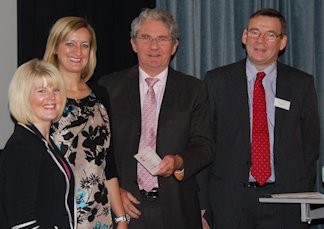D4D Renal Theme awarded NIHR Research Fellowship
D4D’s Renal Theme has been awarded a Doctoral Research Fellowship to develop work on Body Composition Monitor (BCM) in haemodialysis patients.
The award, presented by the National Institute for Health Research (NIHR), in partnership with the Chief Scientific Officer (CSO) for the Department of Health, will support a Clinical Scientist working in Leeds Teaching Hospitals Trust to build on the validation and adoption of the BCM and develop BCM guided fluid management strategies for dialysis patients.
D4D will be a collaborative partner in the work and one of the Renal Theme leads, Dr. Elizabeth Lindley, will act as one of the supervisors for the work.
The BCM will be used to characterise fluid distributions in healthy volunteers and in haemodialysis patients as well as exploring how these distributions are altered in these patients during fluid removal on dialysis.
Attempts at optimising fluid removal, such as promoting fluid shifts from body tissue into the vascular system, will be fully evaluated. The project aims to produce a number of fluid management strategies for different dialysis patient sub-groups, such as those with oedema or those who are prone to symptomatic episodes during dialysis. It is hoped this will help to reduce the rising number of cardiovascular risks in the population which has been linked to overhydration.
David Keane, Clinical Physicist at Leeds Teaching Hospitals, said: “This award is the culmination of years of work in the Renal Unit in Leeds, that started with a D4D funded project looking at BCM in paediatrics and has been supported by D4D throughout.
“It will allow me to work full-time on the project, which will use the BCM to try to make the process of fluid removal less traumatic for patients and better suited to their clinical needs.
“It also gives my team in Leeds the chance to extend their links with D4D and to forge new collaborations with clinicians and scientists in the UK and abroad.”
The NIHR, in partnership with the CSO for the Department of Health, annually runs the Healthcare Science Research Fellowship Competition to support the development of healthcare science research.


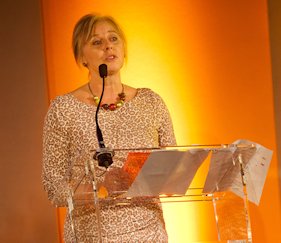 The Medilink Healthcare Business Awards, held at the Cutlers’ Hall, Sheffield, celebrated the achievements of the leading healthcare businesses in Yorkshire and Humber.
The Medilink Healthcare Business Awards, held at the Cutlers’ Hall, Sheffield, celebrated the achievements of the leading healthcare businesses in Yorkshire and Humber.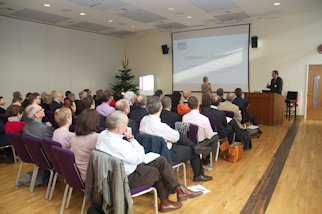
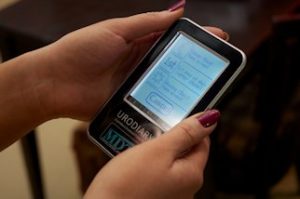
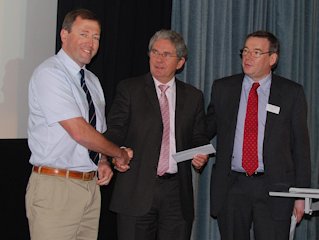 Prof Chris Chapple (right), Prof Paul Abrams (middle) and
Prof Chris Chapple (right), Prof Paul Abrams (middle) and